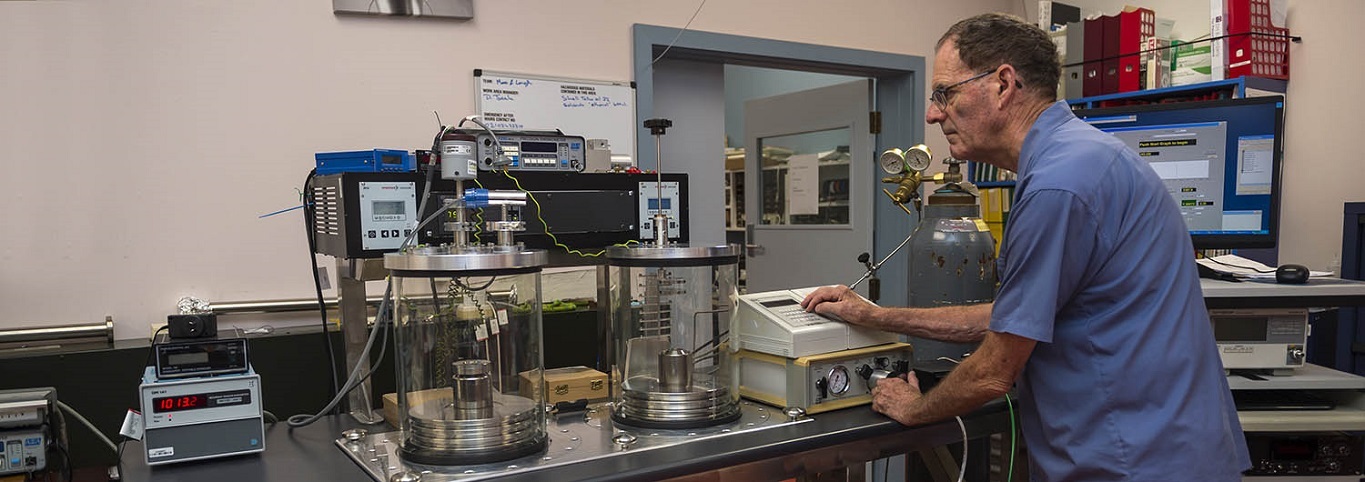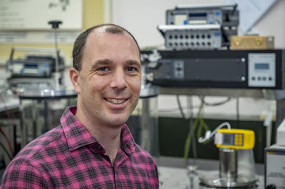Pressure Calibration Workshop
Training course
This workshop is a practical one-day session dealing with all aspects of pressure gauge and transducer calibration. It is especially useful for staff involved in testing and calibration of pressure gauges by comparison against reference pressure gauges or deadweight testers.

Overview
Calibration is more than simply checking or adjusting an instrument. Calibration involves ensuring the gauge under test is working properly, ensuring the reference instrument has a traceable calibration, comparing the two instruments using an appropriate method, and calculating the measurement uncertainty.
This workshop teaches attendees an efficient method to calibrate pressure gauges that meets the technical, quality and legal aspects of calibration. A feature of the method is the straight forward way that the measurement uncertainty is calculated.
The presentation includes many demonstrations and hands-on activities that will be of interest to new and experienced users. By the end of the day, attendees should be able to calibrate a pressure gauge, calculate the associated measurement uncertainty, as well as carry out regular in-service checks on reference equipment.
Note: This workshop will only proceed with sufficient numbers. If we need to cancel, you will be notified three weeks before the start date.
Course fees:
-
$1,120 for each of the first two attendees from an organisation, and
-
$784 for each additional attendee
Presenters

Peter McDowall
Team Leader – Mass and Pressure | Temperature and Humidity | Management
Peter is a Senior Scientist and Team Leader for the Mass and Pressure, and Temperature and Humidity teams. Since joining MSL in 2019 as part of the Mass and Related Quantities team, he has also become the technical lead for MSL’s Pressure standards, developing expertise in pressure measurement using a pressure balance, including contributing to MSL’s primary realisation of the Pascal.
Peter helped design and build the new high pressure calibration facility and represents New Zealand as an active member of the CIPM’s Consultative Committee for Mass (CCM) Working Group on Pressure and Vacuum. He is also part of the team developing a twin pressure balance for use as a force comparator on the MSL Kibble balance.
Peter is a technical expert for many IANZ accredited pressure laboratories in New Zealand.
Outline
General Programme and Learning Outcomes
Topics include:
- Selecting pressure measurement equipment
- Use and maintenance of deadweight testers and reference gauges, including carrying out in-service checks
- Understanding deadweight tester and reference gauge calibration certificates
- Methods of pressure gauge calibration using either deadweight testers or reference gauges
- Calculating measurement uncertainty
- Meeting ISO17025 or in-house quality requirements for traceability
The material in this course is based on MSL Technical Guides TG13 (Pressure gauge calibration), TG16 (Care and use of a deadweight tester) and TG36 (Calculating deadweight tester pressures).
Course Qualification:
Students will receive a course attendance certificate.
Date and Venue
5 August 2025
Auckland
JetPark Hotel & Conference Centre
63 Westney Road
Mangere
Auckland 2022
- Parking available
- Approximately 8 minutes drive from Auckland Airport
Course Times
- 8:30 am – 9:00 am
Welcome tea and coffee
- 9:00 am – 5:00 pm
This course commences at 9:00 am sharp and is expected to end by 5:00 pm.
Catering
Catering includes Morning Tea and Lunch. Please indicate dietary requirements on the registration form.
